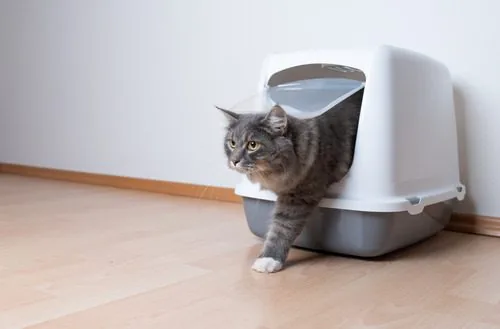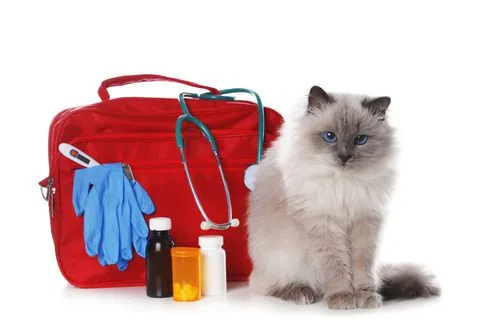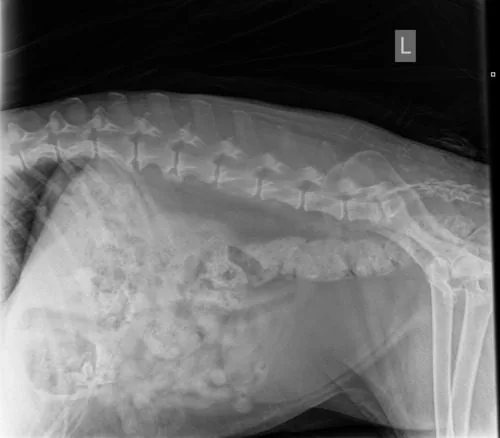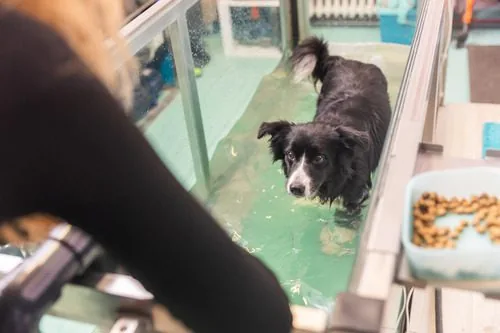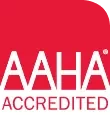Frenchie Nose Surgery: Everything You Need to Know
If you share your home with a French Bulldog, you already know how lovable and expressive these dogs can be. You’ve also likely noticed their noisy breathing, snoring, and occasional snorting. While endearing at times, these sounds often point to a more serious issue that affects many Frenchies: difficulty breathing due to narrowed airways. Frenchie nose surgery, a procedure designed to improve airflow through the nose, has become increasingly common and important for this flat-faced breed. Below, we’ll walk you through everything you need to know about Frenchie nose surgery, from the reasons it’s performed to what recovery involves. If you’re concerned about your Frenchie’s breathing, this information can help guide your next steps.
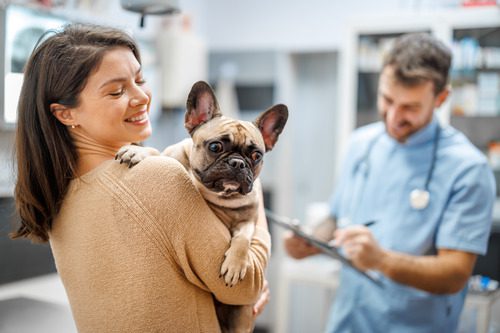
What Is Frenchie Nose Surgery?
Frenchie nose surgery refers to a procedure called stenotic nares surgery, which involves widening a dog’s narrowed nostrils to allow for better airflow. This surgery is often performed as part of a broader treatment for brachycephalic obstructive airway syndrome (BOAS), a condition common in flat-faced breeds like French Bulldogs, Pugs, and Boston Terriers.
French Bulldogs are bred to have shortened snouts, but this physical trait comes with some downsides. The nasal passages in brachycephalic dogs are often compressed, which makes it difficult for them to breathe comfortably. Frenchie nose surgery aims to reduce this struggle by reshaping or removing excess tissue in the nostrils so air can flow more freely. When combined with other airway surgeries (such as soft palate resection), the results can significantly improve a dog’s breathing and quality of life.
Why Do So Many Frenchies Need This Procedure?
French Bulldogs are among the most popular dog breeds in the U.S., but they’re also one of the most likely to need surgical intervention for breathing issues. Their compact facial structure doesn’t leave much room for open nasal passages or efficient airflow.
Brachycephalic Breathing Challenges
Because of their head shape, Frenchies often have:
- Narrow nostrils (stenotic nares)
- An elongated soft palate
- Everted laryngeal saccules
- A narrow trachea
Each of these anatomical features can create resistance as air passes through the nose and throat. Frenchie nose surgery focuses on one of the most visible and correctable of these issues: the stenotic nares. Addressing this early can also prevent or reduce the severity of secondary problems like laryngeal collapse or chronic respiratory fatigue.
Quality of Life Concerns
Frenchies who struggle to breathe may:
- Snore loudly, even while awake
- Struggle to exercise
- Overheat quickly
- Experience sleep disturbances
- Exhibit signs of anxiety or distress when breathing is labored
Surgery can help relieve these symptoms and reduce the long-term health risks associated with poor oxygenation and chronic airway obstruction.
When Should You Consider Frenchie Nose Surgery?
Not every French Bulldog will require surgery, but for many, the benefits outweigh the risks, especially when symptoms are noticeable or progressive. If you’re unsure whether your Frenchie needs surgical intervention, your veterinarian can assess your dog’s breathing and refer you to a specialist if necessary.
Common Signs Your Frenchie May Be a Candidate
You may want to discuss Frenchie nose surgery with your veterinarian if your dog:
- Has flaring or tightly pinched nostrils
- Frequently breathes through their mouth
- Snores loudly while resting or sleeping
- Tires easily during walks or play
- Has difficulty cooling down in warm weather
- Shows signs of stress when breathing
The earlier these issues are addressed, the better the outcomes tend to be. Puppies as young as a few months old can safely undergo the procedure in many cases, often during spay or neuter surgery.
What to Expect During the Surgery
Frenchie nose surgery is usually performed under general anesthesia. The procedure itself typically takes less than an hour and is considered relatively low-risk when performed by an experienced veterinary surgeon.
Surgical Techniques
There are a few different techniques used in Frenchie nose surgery, depending on the surgeon’s approach and the severity of the condition:
- Wedge resection: Removes a triangular wedge of tissue from each nostril to widen the airway.
- Punch resection: Uses a circular instrument to remove tissue and reshape the nostrils.
- Laser or radiosurgery techniques: May be used for precision and minimal bleeding.
Your vet will choose the most appropriate method for your dog’s anatomy and overall health condition.
Recovery After Frenchie Nose Surgery
Most dogs recover well from Frenchie nose surgery and begin breathing easier within a few days. However, proper aftercare is essential to ensure a smooth recovery.
What to Expect Immediately After Surgery
- Mild swelling or bruising around the nostrils
- Slight bloody discharge
- Fatigue or grogginess from anesthesia
- Need for soft foods or restricted activity
Your vet may prescribe anti-inflammatory medication and antibiotics to support healing. Most dogs go home the same day or the following morning, depending on their response to anesthesia.
Full Recovery Timeline
While some improvements may be noticeable within days, full recovery usually takes about 2 to 3 weeks. During this time, pet owners should:
- Prevent rough play or rubbing of the nose
- Follow all medication and post-op instructions
- Monitor for signs of infection or complications
- Schedule a follow-up visit to check healing progress
If you have concerns about your dog’s recovery, always contact your veterinarian for guidance.
Benefits of Frenchie Nose Surgery
For dogs with breathing difficulties, Frenchie nose surgery can be life-changing. While the procedure focuses on the nostrils, it often has a wide-reaching effect on a dog’s overall comfort and health.
Long-Term Improvements
Following a successful surgery, many Frenchies experience:
- Easier, quieter breathing
- Reduced snoring and sleep disruptions
- Improved ability to exercise and play
- Lower risk of overheating
- Decreased risk of secondary airway problems
Owners often notice their Frenchie seems more energetic and engaged post-recovery, which speaks volumes about how much better these dogs feel when they can breathe normally.
Is Frenchie Nose Surgery Covered by Pet Insurance?
Coverage for Frenchie nose surgery depends on the insurance provider and the specifics of your policy. Because the condition is often considered congenital or hereditary, some plans may classify it as a pre-existing condition, especially if the policy was purchased after symptoms began.
Tips for Pet Owners Considering Insurance
If you’re looking into pet insurance with the goal of covering Frenchie nose surgery:
- Enroll early, ideally before any symptoms appear
- Review the policy’s terms for breed-specific exclusions
- Ask whether BOAS-related procedures are covered
- Consider a plan that includes congenital and hereditary conditions
The cost of Frenchie nose surgery can vary widely based on location, surgical method, and whether additional airway procedures are performed. Pet insurance may help offset the cost, but only if the coverage is in place before the condition is diagnosed.
Supporting Your Frenchie’s Long-Term Health
Whether or not your Frenchie undergoes surgery, it’s important to stay proactive about their respiratory health. Regular checkups, a healthy weight, and minimal exposure to heat and humidity can all make a difference. If you notice signs of breathing difficulty, early intervention often leads to better outcomes. Veterinary Healthcare Associates in Winter Haven, FL, has experience managing respiratory conditions in brachycephalic dogs. Our team can help you make informed decisions about your pet’s care. If you’re exploring Frenchie nose surgery, give us a call at (863) 324-3340 to schedule a consultation and learn more about your options.
Recent Posts
When is Dog Diarrhea an Emergency?
When is Dog Diarrhea an Emergency? Dog owners know all too well that occasional digestive upset isn’t…
Is Cat Constipation an Emergency?
Is Cat Constipation an Emergency? Cats are often private about their habits, especially when it comes to…
Feline Emergencies: Warning Signs Your Cat is Crying for Help
Feline Emergencies: Warning Signs Your Cat is Crying for Help Cats have a reputation for being independent,…
Spondylosis in Dogs: Symptoms, Treatment, & More
Spondylosis in Dogs: Symptoms, Treatment, & More If your dog is slowing down or showing signs of…
Dog Wobbler Syndrome: Symptoms, Diagnosis, & Treatment
Dog Wobbler Syndrome: Symptoms, Diagnosis, & Treatment Wobbly walking, a stiff neck, or an unsteady gait in…
About Veterinary Healthcare Associates
Veterinary Healthcare Associates in Winter Haven, FL, was established over 30 years ago as Maxwell Animal Clinic by Dr. John Maxwell. Maxwell Animal Clinic was a one-doctor general practice offering preventive care, dentistry, and standard surgical services to the community. As the years passed, Maxwell Animal Clinic evolved into a thriving 10-doctor general, specialty referral, and emergency veterinary practice.


